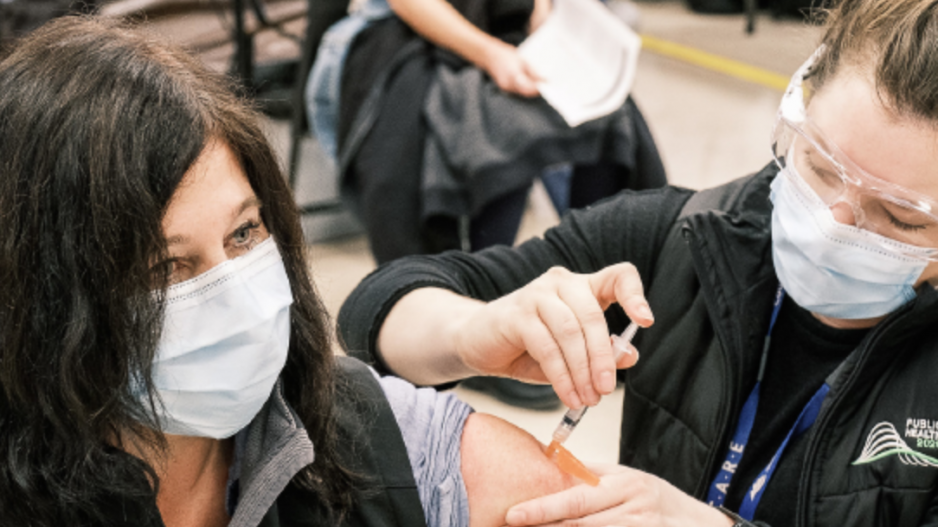A wide range of health-care professionals will be dotting the landscape inside B.C.’s COVID-19 immunization clinics as the province draws closer to its mass vaccination rollout.
Provincial health officer Dr. Bonnie Henry revealed Tuesday (Feb. 23) she’s issued an order allowing dentists, midwives, pharmacy technicians, paramedics, retired nurses and “a number of other professions” to assist at clinics administering vaccines.
At peak immunization capacity, the province will be relying on 715 full-time immunizers across 172 vaccination sites as it seeks to administer about 100,000 doses per day.
Those immunizers are expected to see 140 patients a day to administer doses.
“We are very excited to be able to have the workforce that we are going to need over the next six months to ensure that we can get vaccine to as many people as want it, as efficiently as possible,” Henry said during an afternoon media briefing.
As those full-time immunizers administer jabs, Henry said those being recruited will be able to “provide different functions” for the clinics.
The province will be unveiling additional details Monday for its broader vaccination plan, specifically for those who are 80 years and older.
The current phase of the vaccination campaign — set to conclude at the end of March — is focused on B.C.’s most vulnerable groups as well as frontline workers.
The mass vacation effort is set to begin in April.
To date, 224,354 vaccine doses have been administered in B.C., of which 58,896 are second doses.
That’s up from the 218,726 doses administered 24 hours earlier, of which 55,057 were second doses.
Henry said so 10 out of every 100,000 doses administered have resulted in allergic reactions.
She added that the province also requires “new systems” for managing the immunization process, such as keeping track of knowing which vaccine goes into British Columbians between their first and second doses.
“We want to make sure that we have a seamless ability for people to register and book their appointments to get their immunizations, to have that recorded in our central provincial registry so that it’s available to your health-care providers in the future and also to be scheduled for your second [dose] when it comes up,” she said.
The federal government awarded Deloitte Inc. a $16-million contract late last year to provide a national vaccine management IT platform (NVMIP) meant to assist provinces with vaccine rollout, administration and reporting.
The NVMIP isn’t meant to replace B.C.’s existing system, but the province confirmed it would be used to record all immunizations electronically and track vaccine inventory.
“I know that there’s going to be glitches, there’s going to be bumps,” Henry said.
“We will not let people be left behind. We will be reaching out to you and we will be making sure that you get what you need.”
Meanwhile, the country is set to receive its , totalling 643,020 doses from both Pfizer Inc. and Moderna Inc.
Pfizer is due to deliver 64,350 doses specifically to B.C. this week, followed by 60,840 doses the following four weeks.
That will drop slightly the final week of March when the pharmaceutical giant is scheduled to deliver 59,670 doses.
Moderna is due to deliver 16,400 doses to B.C. this week, but the exact allocation after the next few weeks afterward remains murky as Ottawa awaits specifics from the manufacturer.
The latest deliveries bring Canada’s total tally to 2.5 million doses since mid-December, while Pfizer and Moderna are still due to deliver a combined additional 3.5 million doses by the end of March.



